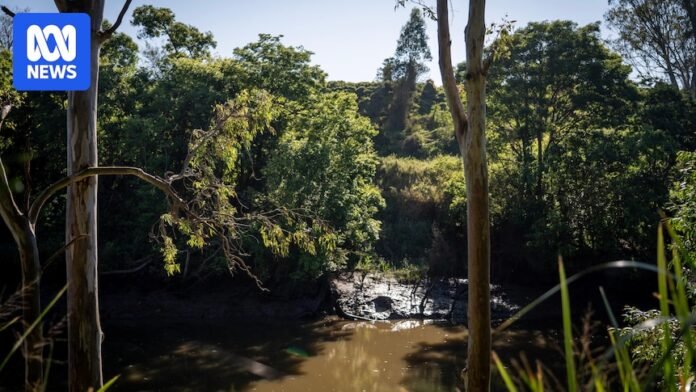A proposed affordable housing complex, “Riverlink Villages,” in North Ipswich, Queensland, could force over 1,000 low-income residents to evacuate during major flood warnings. The development by LEDA Holdings, planned for the Bremer River banks, has faced opposition due to the area’s history of flooding. The evacuation plan requires residents to find their own shelter, raising concerns about their safety and support. While the developer claims the project won’t worsen flooding and provides necessary affordable housing, a protest group, “Sinking Ipswich,” argues that filling the floodplain creates unacceptable risks. The Ipswich City Council is currently assessing the application.
Highlights
Here are the key points from the article:
- Proposed Development: Leda Holdings wants to build almost 500 affordable apartments in North Ipswich, Queensland, on the banks of the Bremer River.
- Flood Risk: The land has flooded multiple times, including recent major floods in 2022 and early 2024, and is prone to flood warnings.
- Evacuation Plan: A major flood warning would require the evacuation of an estimated 1,377 residents, who would have to find their own shelter with family/friends or at emergency evacuation centers.
- Developer Claims: The developer claims the design (parking on the ground floor) would mitigate flood risks and that the development wouldn’t impact existing homes.
- Opposition: A protest group, Sinking Ipswich, opposes the development, citing unacceptable flood risks and the potential impact on existing homes due to altered river dynamics.
- Council Review: Ipswich City Council is reviewing the application, taking into account expert recommendations and community concerns. No decision has been made yet.
- Limited Access: The development would have only one major road for access/egress, raising concerns about evacuation during floods.
A Flood of Fear: Proposed Affordable Housing Threatens Vulnerable Residents in Ipswich
The dream of affordable housing can quickly turn into a nightmare when built on shaky ground. In North Ipswich, south of Brisbane, a proposed development by LEDA Holdings, owned by billionaire Bob Ell, is stirring up a storm of controversy and raising serious concerns about the safety and well-being of its future residents. This isn’t just about bricks and mortar; it’s about the lives of over 1,000 low-income, vulnerable individuals who could be placed directly in harm’s way.
The Riverlink Villages: A Gamble on a Floodplain?
The Riverlink Villages project, envisioned as a complex of almost 500 apartments, is slated for construction on the banks of the Bremer River. This location, however, is no stranger to flooding. History paints a grim picture, with multiple major floods occurring over the past 130 years. Recent events, including floods in 2022 and earlier this year following ex-Tropical Cyclone Alfred, serve as stark reminders of the river’s unpredictable nature.
Furthermore, even without major deluges, the Bremer has proven its capacity to cause disruption. The December 2024 flood warnings saw the river burst its banks, cutting off roads and isolating communities. The proposed development, sitting squarely in this flood-prone zone, begs the question: are we prioritizing profit over people?
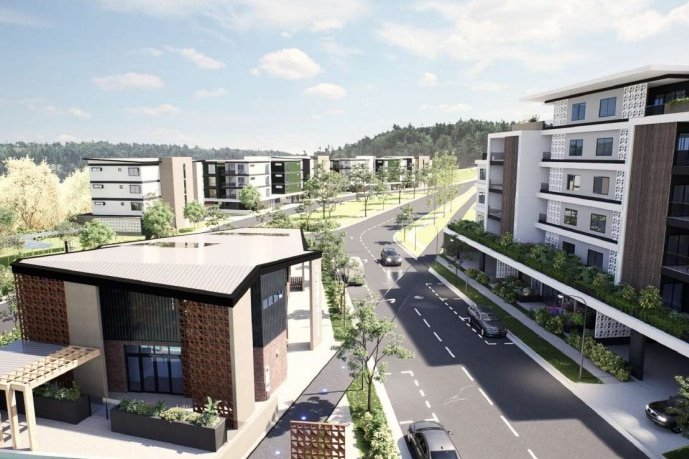
An Evacuation Plan That Leaves Residents Adrift
The flood management plan for the Riverlink Villages, submitted to the Ipswich City Council, acknowledges the development’s vulnerability to “extreme potential flood levels… in major flooding events.” But the proposed solution? A mass evacuation of an estimated 1,377 residents every time the Bureau of Meteorology issues a major flood warning.
Imagine the scene: vulnerable individuals, many with limited resources and support networks, being forced to flee their homes in the dead of night, unsure of where to go or how to get there.
But here’s the chilling part: the plan explicitly states that residents will be on their own once they evacuate.
“They are to find their way to the safest flood-free land, and preferably with family or friends. Or to an evacuation centre run by local or state emergency services and disaster management agencies.”
This is not a plan; it’s an abandonment strategy. Are we seriously suggesting that elderly residents, single parents, and individuals with disabilities should be left to fend for themselves in a crisis? The emotional toll of such uncertainty and vulnerability is immeasurable.
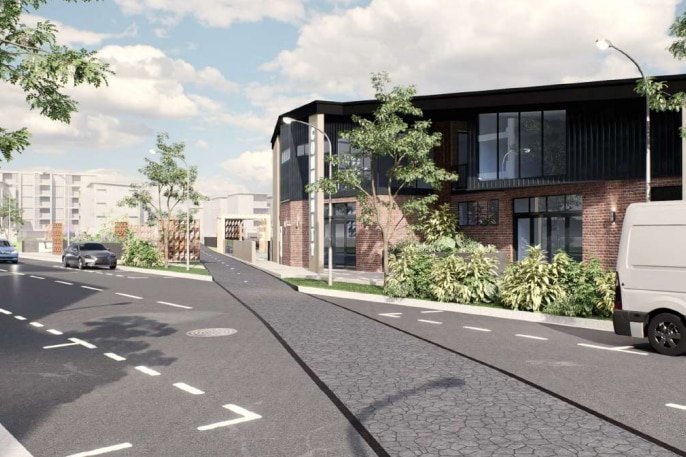
The Numbers Don’t Lie: A Statistical Look at the Risk
To truly grasp the magnitude of the potential disaster, let’s delve into some statistics. According to historical data, the Bremer River has experienced major flooding events approximately once every 10-15 years. However, climate change is exacerbating the risk, leading to more frequent and intense weather events.
- Frequency of Evacuations: Even if major floods occur every 10 years, the development could face multiple flood warnings annually, triggering repeated evacuations.
- Cost of Evacuations: Each evacuation would incur significant costs, including transportation, temporary accommodation, and emergency services. Who will bear these costs?
- Impact on Mental Health: Studies have shown that repeated displacement and the fear of flooding can lead to chronic stress, anxiety, and depression.
The question is: can we, in good conscience, subject vulnerable residents to this constant cycle of fear and displacement?
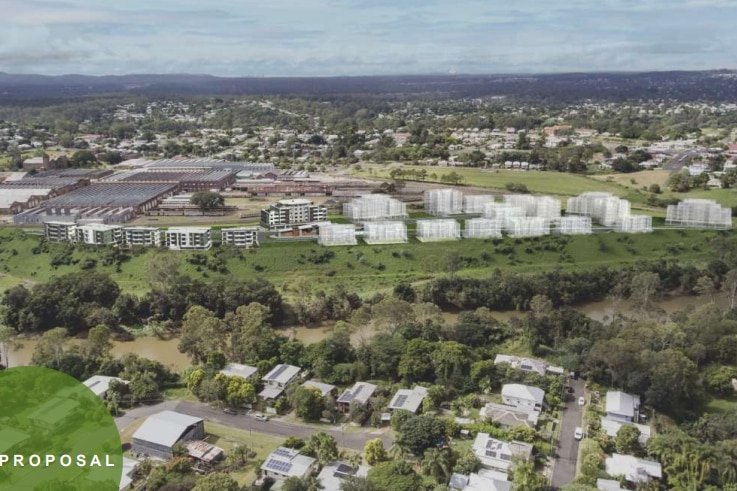
A Single Road to Disaster?
Adding to the concerns is the limited access to the proposed development. The plans call for only one major road in and out, creating a potential bottleneck during evacuations. While the developer touts bike and walking path access to a nearby shopping centre (also owned by LEDA), these are hardly viable evacuation routes for vulnerable individuals in a flood emergency.
What happens if that single road becomes impassable? The prospect of hundreds of residents stranded in tower blocks, awaiting rescue from the tops of buildings, is a terrifying scenario.
Developers Claim No Impact: A Disconnect from Reality?
Sargent Planning, working on behalf of LEDA, insists that the development will not impact existing homes in the area. They argue that the project will provide much-needed affordable and social housing, benefiting “key workers, low-income workers, and at-risk vulnerable residents.”
“No houses get flooded as a result of this development internally. There’s no impact to flooding from the development itself.”
But this claim rings hollow in the face of overwhelming evidence. Filling in the floodplain, even partially, will inevitably alter the river’s dynamics, potentially increasing flood risk for surrounding properties.
“Sinking Ipswich”: A Community Rises Up
Local protest group Sinking Ipswich, led by Nick White, has been fighting against the development for years. They understand the risks and are determined to protect their community.
“If you fill in the flood plain, it’s going to have massive effects for everyone. You can’t take these developments in isolation. You’ve got to look at the overall picture, and one will affect the next, and will affect the next, and affect the next.”
Mr. White, who lives directly opposite the proposed development, has witnessed firsthand the changes in the river’s behavior due to prior earthworks.
“Because of the earthworks that have been done there already, the dynamics of the river have changed. The flow has increased. Erosion has increased… that’ll endanger those houses.”
His concerns are echoed by many residents who fear the long-term consequences of this ill-conceived project.
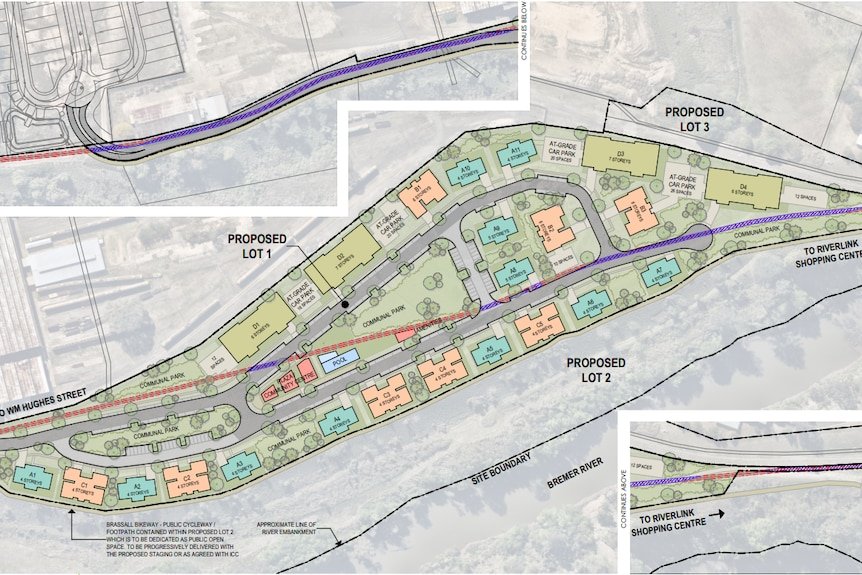
A No-Brainer: Resources Better Spent Elsewhere
As Nick White aptly puts it:
“Those are the kind of resources that should be going somewhere else, it’s a no-brainer.”
Instead of pouring millions into a project that puts vulnerable residents at risk, why not invest in genuinely safe and sustainable affordable housing solutions? There are countless locations in Ipswich that are not prone to flooding and that could provide a stable and secure environment for those in need.
The Council’s Decision: A Test of Integrity
The Ipswich City Council is currently reviewing the development application for Riverlink Villages. Their decision will not only determine the fate of this project but also reflect their commitment to the safety and well-being of their constituents.
The council acknowledges community concerns and promises a thorough assessment, including incorporating recommendations from an independent review panel.
It is Time to Act!
The Ipswich City Council must prioritize the safety and well-being of its residents. We urge them to reject the Riverlink Villages development application and instead focus on finding sustainable and safe affordable housing solutions.
This is not just about preventing a potential disaster; it’s about upholding our moral responsibility to protect the most vulnerable members of our community.
Here’s how you can help:
- Contact the Ipswich City Council: Express your concerns about the Riverlink Villages development and urge them to reject the application.
- Support Sinking Ipswich: Join their campaign and help raise awareness about the risks of developing on floodplains.
- Share this article: Spread the word and let others know about the potential dangers of this project.
- Demand Accountability: Hold LEDA Holdings accountable for their reckless disregard for the safety of future residents.
Let’s work together to ensure that affordable housing doesn’t come at the cost of human lives. Let’s protect the vulnerable and build a safer, more sustainable future for Ipswich.

